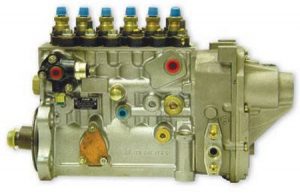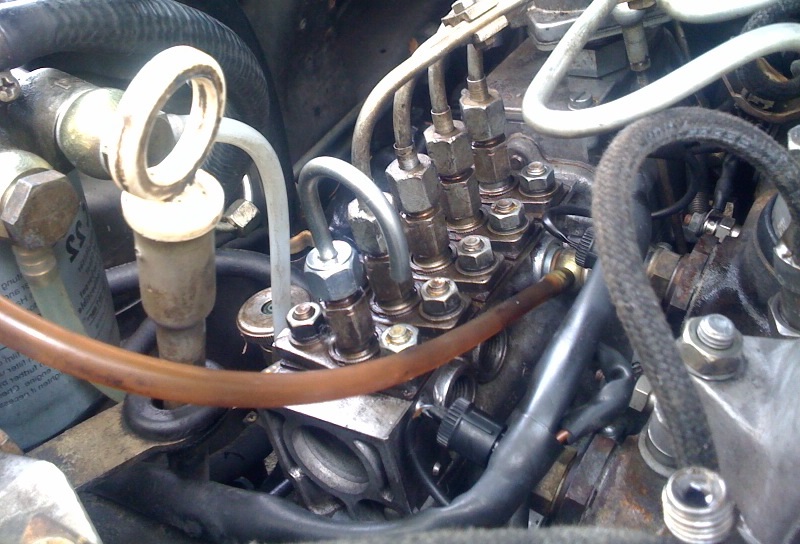About diesel fuel pumps (and what can go wrong)

If you’re running a diesel out here in Hamilton, whether you’re cruising down Te Rapa Road, powering up the Expressway on your way to Ngaruawahia, or just stuck behind a tractor somewhere near Cambridge, your diesel fuel pump is doing all the heavy lifting under the bonnet. Its job? Pressurise all that diesel, shove it through to the injectors, and get it where it needs to go in the cylinders. Without that happening properly, you’re not going anywhere fast—especially with some of the traffic crawls round town in the mornings.
If you’re curious about how these pumps actually work, bit more on the nuts-and-bolts side, here’s a handy article on how fuel pumps work >
Short story is, if your pump is blocked, leaky, or knackered, your engine’s going to act up. Keeping your diesel pump in good nick is most important—otherwise, you’ll be off the road quicker than you can say “failed WOF”.
What causes diesel fuel pump dramas?
- Blocked diesel pumps – Happens more than you’d think, especially with all the stop-start driving up Five Cross Roads or round Rototuna. Diesel gunk and residue builds up in the system, slowly chokes it off till the fuel just can’t flow. Often see this on older Isuzu D-Maxes or those Mazda BT-50s that haven’t had a good clean-out in ages.
- Leaking fuel pumps – Diesel pumps have these rubber seals that should keep it all in. But between potholes up in Chartwell and speed bumps in Dinsdale, those seals can get worn or brittle. Once they go, you might see little puddles under the Hilux or even smell diesel when you’re parked up at Pak’nSave.
- Wrong fuel in the tank – Easy mistake with all the self-serve stations. If you accidentally put petrol in your Hyundai Santa Fe diesel or get a batch of low-quality fuel, you’re not just risking the pump. It’ll clog everything up quick smart. Check out what to do if you’ve filled up with the wrong stuff here.
- Just getting old – Like everything, pumps wear out. Seen plenty of Toyota Granvia vans and even a few Ssangyong Rextons in for this. Bearings, seals, all the inside bits just start to give up after years on the road.
- Fuel pump relay issues – Your modern Euro wagons (bit more common with Peugeot 308s or the odd Citroen) run a lot on electronics. If the relay or wire connections go bung, the pump won’t even get power.
- Low or weird pressure – If you’ve noticed sluggish take-offs up the hills in St Andrews, sometimes it’s the pump or the fuel pressure regulator playing up. You’ll spot it before long, cos the car just doesn’t have the grunt you’re used to.
How do you know if your diesel fuel pump’s packing it in?
- Hard to start, or won’t start at all – Got a Ford Transit that cranks and cranks but won’t fire? Seen it with plenty of VW Transporters too. Usually, not enough fuel getting through.
- Less power than normal – If your car’s struggling to overtake trucks heading out on SH3 to Ohaupo, or just doesn’t pull like it should, pump’s a suspect. Especially common in women’s daily drivers like those Nissan X-Trails or even a trusty Kia Sorento.
- Guzzling fuel – Noticed you’re filling up the tank way more than usual? Might be a leak—especially if you see drips in your driveway after parking up on a hot summer’s day in Morrinsville.
- Engine misfires – That lumpy idle, rough running, sometimes a proper kangaroo hop if the pressure drops out.
- Diesel puddles under the car – Spot a wet patch under your ute on a foggy Tamahere morning? That’s a red flag. Don’t ignore it; it’s only going to get worse.
Diesel fuel pump cleaning, testing & replacement in Hamilton
Look, if you reckon your diesel, whether it’s an Audi Q5 or a Mitsubishi Triton, needs a bit of love with pump cleaning, testing, or maybe even a new pump, we’re here for it. Our techs handle everything from basic fuel pump cleaning to full replacements. No fuss, no drama, just straight-up solutions. We’ll get you sorted quick so you can get back on the road—and keep your fuel bills and engine headaches down.
If you want your diesel running smooth through those sticky Hamilton winters or when it’s blazing on a summer’s day out in Raglan, give us a bell. For diesel fuel pump repairs, car service Hamilton, or just solid advice, we’ve got your back at Grimmer Motors.

